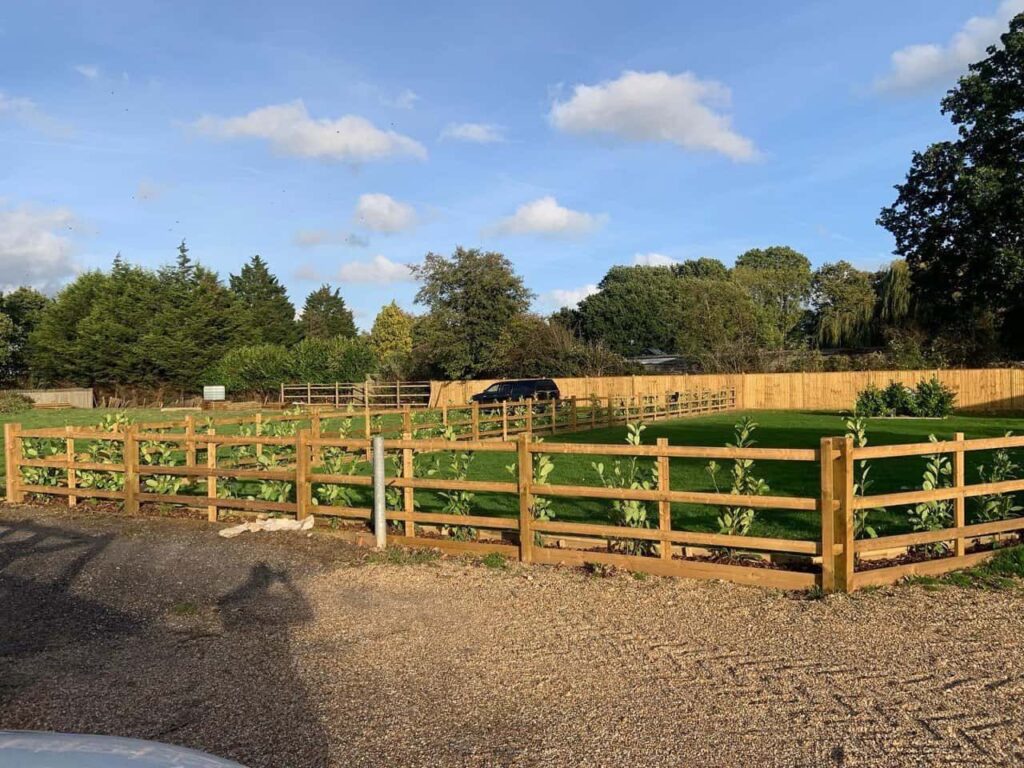Steel, Mesh or Timber? Matching Fence Materials to Your Livestock
Introduction
When it comes to livestock fencing, one size certainly doesn’t fit all. The type of material you choose plays a crucial role in ensuring your animals are kept safe, contained, and stress-free. At Fast Fix Fencing Upwell, we know how important it is for Norfolk landowners to select the right fencing solution—not just for practical reasons, but also to protect long-term investment in both land and animals.
Whether you’re managing cattle, sheep, pigs or poultry, choosing between steel, mesh or timber fencing can feel like a maze. This blog breaks down the strengths of each option to help you make the best decision for your needs.
Steel Fencing: Strength for Larger Livestock
Steel fencing, particularly post-and-rail or bar fencing, offers unmatched durability and is ideal for larger animals like cattle and horses.
- Highly resistant to pressure and impact
- Long-lasting with minimal maintenance
- Less prone to damage from strong or aggressive livestock
Steel is often the go-to material when fencing must double as a long-term boundary solution or when animals have a history of testing their enclosure.
Mesh Fencing: Versatile and Secure
Wire mesh or stock fencing is an extremely versatile option suitable for many types of animals—especially sheep, goats and poultry.
- Prevents smaller animals escaping or predators entering
- Can be electrified for added deterrent
- Easy to install and adaptable to different terrains
Mesh fencing provides the security of steel with more flexibility and is a reliable all-rounder on most farms or holdings.
Timber Fencing: Traditional but Limited
Timber fencing still has its place, particularly in paddocks, equine enclosures, and decorative or perimeter fencing.
- Aesthetically pleasing and natural in rural settings
- Customisable for smaller animals or less aggressive stock
- Easier to repair or replace individual posts or rails
That said, timber fencing is more susceptible to weather damage and wear over time, so it may not be suitable for high-impact livestock or wet conditions unless properly treated.
Matching Fence Type to Animal Needs
Here’s a quick guide to help match fencing to the animal:
- Cattle: Steel rail or high-tensile wire for strength
- Sheep & Goats: Mesh with small grid openings to prevent climbing or slipping through
- Poultry: Fine mesh netting with ground-level security
- Horses: Post and rail timber or steel for visibility and containment
- Pigs: Low, strong barriers such as heavy-duty mesh or solid timber
Conclusion
Choosing the right fencing material is more than a matter of taste—it’s about safety, function and cost-effectiveness over time. At Fast Fix Fencing Upwell, we help Norfolk landowners strike that perfect balance between durability and practicality, tailored to the specific livestock on the property.
If you’re unsure what fencing type best suits your needs, our team is here to assess your land and recommend a smart, long-term solution. Get in touch with us today and protect your animals the right way—starting with the right fence.
Call us on: 01945 66 0354
Click here to find out more about Fast Fix Fencing Upwell
Click here to complete our contact form and see how we can help with your fencing needs.

